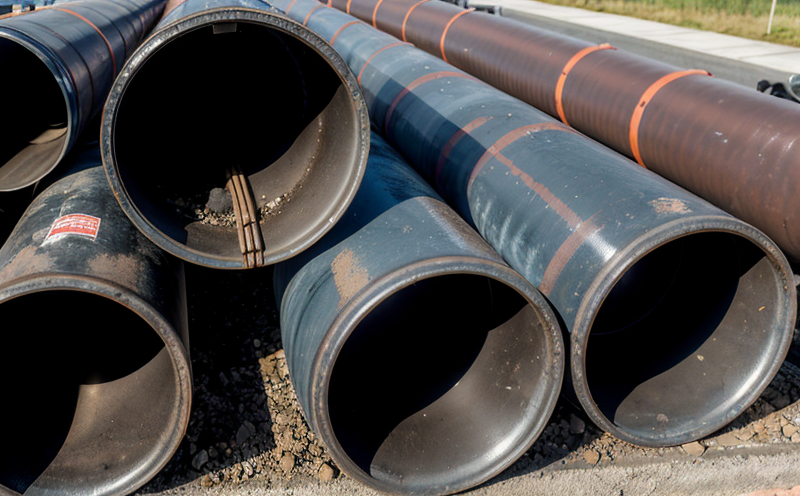UNE EN 12201-4 Testing of Plastic Pipe Fittings
The UNE EN 12201-4 standard specifies a series of tests aimed at evaluating the mechanical properties and performance of plastic pipe fittings. These fittings are crucial components in plumbing systems, irrigation networks, and other water management applications. The standard is part of a larger family of standards that collectively provide guidelines for assessing various aspects of plastic pipes.
The testing outlined in UNE EN 12201-4 covers a range of critical parameters including burst strength, pressure resistance, flexibility, impact resistance, and chemical resistance. These tests are essential for ensuring the long-term reliability and safety of plumbing systems that use these fittings. The standard also addresses the performance under different environmental conditions such as temperature variations and exposure to chemicals.
The methodology involves subjecting samples of pipe fittings to specific loading conditions in controlled laboratory environments. This includes hydrostatic testing, where the fitting is subjected to steady pressure over a period of time, and impact tests designed to assess resistance against external forces. The results from these tests are used to determine compliance with the specified performance criteria.
Compliance with UNE EN 12201-4 ensures that manufacturers meet international quality standards, which is particularly important in sectors reliant on reliable plumbing infrastructure. This standardization helps to prevent failures and leaks, thereby enhancing public safety and reducing maintenance costs. Additionally, it supports the development of innovative products by providing clear criteria against which new designs can be evaluated.
Testing under these conditions is not only a regulatory requirement but also serves as a benchmark for quality assurance in the industry. It ensures that all components used in construction projects meet stringent performance expectations, contributing to overall system integrity and longevity.
Why It Matters
The importance of adhering to UNE EN 12201-4 cannot be overstated given its role in ensuring the durability and safety of plastic pipe fittings. Inadequate testing can lead to premature failure, leaks, or other issues that compromise both individual property integrity as well as broader infrastructure reliability.
From a consumer perspective, failing to meet these standards could result in higher maintenance costs due to frequent replacements necessitated by faulty components. From an environmental standpoint, it underscores the need for sustainable practices within manufacturing processes and ensures minimal waste generation through robust design and material selection.
- Enhanced Safety: Ensures that plumbing systems are free from defects which could otherwise cause serious accidents or injuries.
- Increased Reliability: Reduces the likelihood of system failures, thus extending the lifespan of installed infrastructure.
In essence, compliance with UNE EN 12201-4 is paramount for maintaining high standards in quality and performance across various applications involving plastic pipe fittings.
Applied Standards
| Standard | Description |
|---|---|
| UNE EN 12201-4 | Specification for plastic pipe fittings - Part 4: Testing methods. |
| ISO 5837 | Hydraulic pressure testing of water supply systems and components. |
| ASTM D1236 | Density of polyolefin plastics. |
The application of these standards ensures consistent quality across all stages of production, from raw material selection to final product performance. By adhering strictly to UNE EN 12201-4 and other relevant international standards, manufacturers can confidently assure end-users that their products meet the highest industry benchmarks.
Competitive Advantage and Market Impact
- Quality Assurance: Compliance with UNE EN 12201-4 helps establish a reputation for reliability, which is crucial in competitive markets.
- Regulatory Compliance: Meeting these standards ensures that products comply with local and international regulations, opening up broader market opportunities globally.
By leveraging the stringent testing protocols defined by UNE EN 12201-4, companies can differentiate themselves in a crowded marketplace. They demonstrate their commitment to excellence and innovation, which ultimately translates into customer satisfaction and loyalty.





